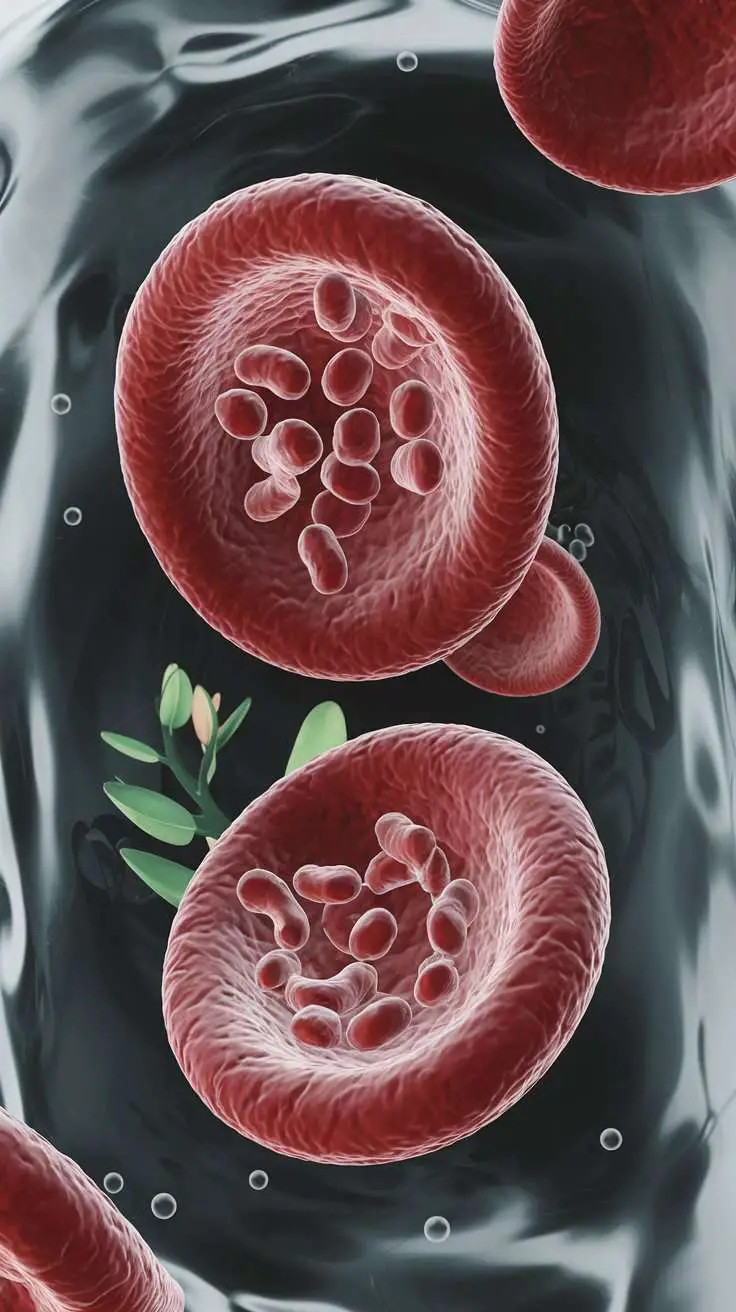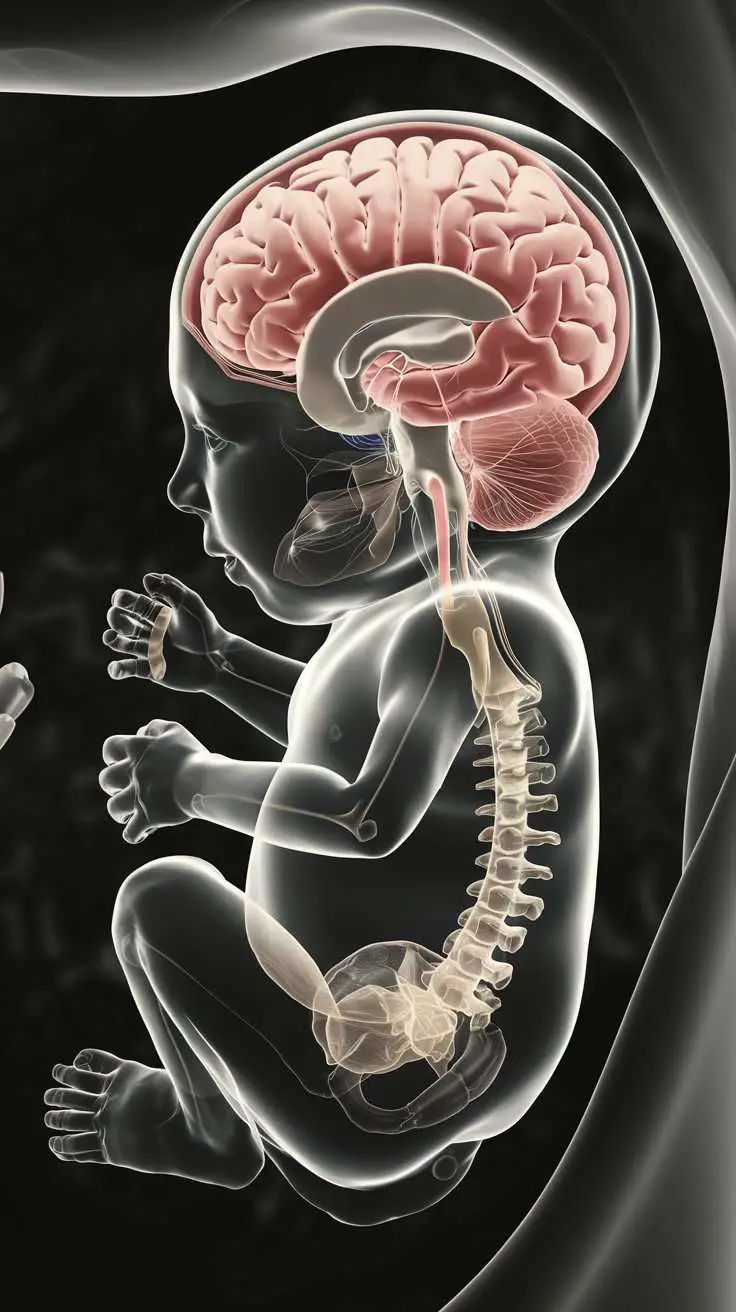Iron is an essential mineral for pregnant women since it affects the health of the fetus as well as the mother. For the synthesis of hemoglobin, which aids in the delivery of oxygen to the mother and her developing child, adequate quantities of iron are necessary.
Iron deficiency, however, is common in pregnant women, which raises questions about possible consequences. How can iron deficiency in pregnancy affect baby growth? is one urgent question.
This blog post will discuss the effects of low iron on fetal development and how your baby’s growth and general health may be affected by a deficiency in this essential vitamin. We’ll also go over the signs of iron deficiency, the dangers, and how to be sure you’re getting enough iron during your pregnancy.
The Role of Iron in Pregnancy:
During pregnancy, iron is a vital nutrient that is necessary for the health of the mother and the unborn child. The body needs more iron during pregnancy to maintain the larger blood volume and make sure the growing fetus gets enough oxygen.

Hemoglobin, the protein found in red blood cells that transports oxygen from the lungs to the body’s tissues, is largely composed of iron. Sufficient iron levels aid in preventing anemia, which can cause problems for both the mother and the unborn child as well as weariness and lowered immunity.
Pregnancy increases the need for iron, which is necessary for the placenta’s growth and the production of the baby’s blood supply. Additionally, iron is necessary for the healthy development of a baby’s brain and cognitive abilities.
Therefore, managing iron levels is crucial. Can iron deficiency in pregnancy affect baby growth? The answer is yes—iron deficiency can impede the baby’s growth, leading to potential developmental delays and complications. Ensuring sufficient iron intake through diet and supplements can help mitigate these risks and promote a healthier pregnancy outcome.
What Happens When You’re Iron Deficient?
When the body does not have enough iron to make the hemoglobin required for red blood cells, it is said to be iron deficient. Because pregnant women require more iron, this shortage may worsen during pregnancy. Low iron levels can cause a number of health problems for the mother and the unborn child.
Anemia, which is marked by symptoms including excessive exhaustion, weakness, dizziness, and shortness of breath, is frequently the result of iron deficiency in mothers. Life quality and general health may be negatively impacted by this illness.
In extreme circumstances, it might also raise the chance of side effects like postpartum depression or premature delivery. Regarding the baby, Can iron deficiency in pregnancy affect baby growth? The answer is yes. Iron deficiency can significantly impact fetal development.
Without enough iron, the baby may experience restricted growth, low birth weight, and developmental delays. Iron is crucial for the development of the baby’s brain and other vital organs. If iron deficiency is left untreated, it can lead to long-term developmental issues and affect the baby’s health even after birth.
Addressing iron deficiency through diet and supplementation is essential for a healthy pregnancy and optimal baby growth.
Can Iron Deficiency in Pregnancy Affect Baby Growth?
Pregnancy-related iron shortage can significantly affect the growth and development of the fetus. The synthesis of hemoglobin, which supplies oxygen to the mother and the unborn child, requires iron. Reduced oxygen delivery to the growing fetus due to inadequate iron levels can hinder its growth and development.
Low iron levels during pregnancy can limit the baby’s growth because of inadequate oxygen and nutrition. Complications include low birth weight, premature birth, and developmental problems that may result from this. According to studies, infants born to moms with low iron levels are more likely to experience cognitive and motor deficits.

These impacts could influence general development and health well into infancy. So, Can iron deficiency in pregnancy affect baby growth? The answer is a definite yes. Ensuring adequate iron intake through a balanced diet and supplements is crucial for supporting healthy fetal growth and reducing the risk of these adverse outcomes.
Regular screening and management of iron levels can help ensure both mother and baby remain healthy throughout pregnancy.
Short-Term and Long-Term Consequences:
Iron deficiency during pregnancy can lead to both immediate and lasting effects on the baby’s health. Understanding these consequences is crucial for effective management and prevention.
Short-Term Consequences: When iron deficiency occurs, it can result in low birth weight and preterm birth. Babies born with low iron levels may face difficulties such as weakened immune systems and poor growth. Immediate effects include a higher risk of anemia in the newborn, which can cause fatigue and developmental delays. These short-term complications often require medical intervention to address.
Long-Term Consequences: Can iron deficiency in pregnancy affect baby growth? Yes, it can. The long-term effects of untreated iron deficiency can be significant. Babies may experience developmental delays, impacting cognitive and motor skills. Studies suggest that iron deficiency can influence a child’s academic performance and behavioral development. Additionally, chronic iron deficiency may lead to ongoing health issues that persist into childhood and beyond.
Addressing iron deficiency through diet and supplements can help mitigate these risks and promote a healthier developmental trajectory for the baby. Regular monitoring and proactive care are essential for preventing these short-term and long-term consequences.
Consequences for Baby if Iron Deficiency Is Left Untreated:
If iron deficiency is not treated early in pregnancy, it may have major and permanent effects on the unborn child. For a fetus to develop normally, iron is essential, especially for the production of red blood cells and the growth of the brain and other important organs. If iron deficiency is not treated, the infant may experience a number of negative consequences.
Limited fetal growth is one of the main issues. Insufficient iron can contribute to low birth weight, as the infant does not obtain the necessary oxygen and nutrition. This can raise the chance of a preterm birth and increase the baby’s susceptibility to health problems soon after birth.
Additionally, Can iron deficiency in pregnancy affect baby growth? Yes, it can. Untreated iron deficiency may result in developmental delays, affecting cognitive and motor skills. Research indicates that such deficiencies can have long-term impacts, potentially affecting the child’s academic performance and behavioral development.
Furthermore, severe iron deficiency can lead to anemia in the baby, which may require medical intervention. Addressing iron deficiency early through dietary changes and supplements is essential to prevent these serious outcomes and ensure the baby’s optimal growth and development.
Health Recommendations:
To mitigate the risks associated with iron deficiency during pregnancy, implementing effective health recommendations is crucial. Ensuring adequate iron intake and regular monitoring can help safeguard both maternal and fetal health.
Dietary Recommendations: Consuming a diet rich in iron is a foundational step. Incorporate iron-rich foods such as lean meats, legumes, spinach, and fortified cereals. Combining these with vitamin C-rich foods, like oranges and bell peppers, enhances iron absorption. Avoiding excessive consumption of calcium and tannins (found in tea and coffee) around iron-rich meals can also improve absorption.

Supplementation: For many pregnant women, dietary changes alone may not suffice to meet increased iron needs. In such cases, healthcare providers often recommend iron supplements. It’s important to follow the prescribed dosage to avoid side effects and ensure optimal absorption. Regularly check with your provider to adjust the dosage as needed.
Regular Monitoring: Can iron deficiency in pregnancy affect baby growth? Yes, it can. Therefore, routine blood tests to monitor iron levels are essential. Early detection of deficiency allows for timely intervention and helps prevent potential complications.
By following these health recommendations, you can effectively manage iron levels during pregnancy, supporting optimal growth and development for your baby and maintaining overall maternal health.
Prevention and Management:
Preventing and managing iron deficiency during pregnancy is crucial for both maternal and fetal health. Adequate iron levels help ensure that the baby receives the necessary nutrients for healthy growth and development. Effective strategies include dietary changes, supplements, and regular monitoring.
Dietary Changes: Consuming iron-rich foods is the first line of defense. Foods such as lean meats, beans, lentils, spinach, and fortified cereals are excellent sources of iron. Pairing these with vitamin C-rich foods, like oranges and bell peppers, can enhance iron absorption.
Iron Supplements: For many pregnant women, dietary intake alone may not meet the increased iron needs. Healthcare providers often recommend iron supplements to bridge this gap. It’s important to follow the prescribed dosage to avoid potential side effects and ensure adequate absorption.
Regular Monitoring: Routine blood tests can help monitor iron levels throughout pregnancy. Can iron deficiency in pregnancy affect baby growth? Yes, it can, and regular monitoring helps in early detection and management. If iron levels are low, prompt intervention can prevent complications.
Combining these strategies effectively manages iron deficiency and supports a healthy pregnancy, minimizing risks to both mother and baby.
Conclusion:
In summary, iron is vital for a healthy pregnancy, and managing iron levels is crucial to prevent complications. Untreated iron deficiency can significantly impact fetal development, raising concerns about whether can iron deficiency in pregnancy affect baby growth. The answer is yes.
Ensuring adequate iron intake through a balanced diet and supplements is essential to support optimal baby growth and prevent long-term health issues. Regular monitoring and proactive management are key to a healthy pregnancy outcome. Click to learn more.
FAQs:
- What are the symptoms of iron deficiency during pregnancy? Iron deficiency symptoms can include fatigue, weakness, dizziness, pale skin, and shortness of breath. It may also lead to cravings for non-food items, a condition known as pica.
- How can iron deficiency affect baby growth? “Can iron deficiency in pregnancy affect baby growth?” Yes, it can. Iron deficiency may lead to low birth weight, preterm birth, and developmental delays due to inadequate oxygen and nutrients reaching the baby.
- What foods are best for increasing iron levels during pregnancy? Lean meats, beans, lentils, spinach, and fortified cereals are among the foods high in iron. Pairing these with vitamin C-rich foods like citrus fruits can enhance iron absorption.
- When should I start taking iron supplements during pregnancy? Consult your healthcare provider about starting iron supplements. They may recommend them based on your dietary intake and blood test results, especially if you’re at risk for deficiency.
- How often should I get my iron levels checked during pregnancy? It’s generally recommended to have your iron levels checked at least once during pregnancy, typically in the first or second trimester. Your healthcare provider may advise more frequent checks if you have symptoms or are at higher risk.
